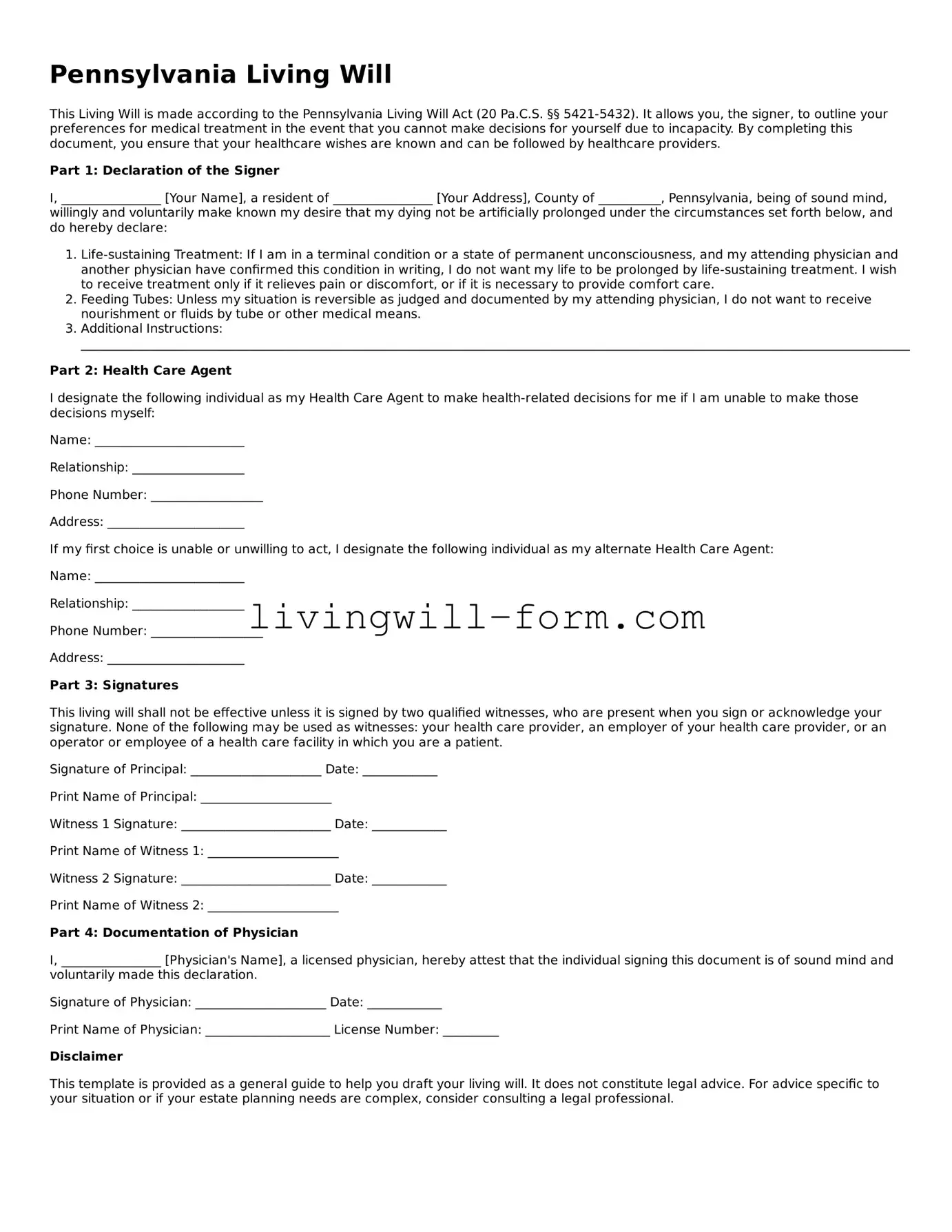Pennsylvania Living Will
This Living Will is made according to the Pennsylvania Living Will Act (20 Pa.C.S. §§ 5421-5432). It allows you, the signer, to outline your preferences for medical treatment in the event that you cannot make decisions for yourself due to incapacity. By completing this document, you ensure that your healthcare wishes are known and can be followed by healthcare providers.
Part 1: Declaration of the Signer
I, ________________ [Your Name], a resident of ________________ [Your Address], County of __________, Pennsylvania, being of sound mind, willingly and voluntarily make known my desire that my dying not be artificially prolonged under the circumstances set forth below, and do hereby declare:
- Life-sustaining Treatment: If I am in a terminal condition or a state of permanent unconsciousness, and my attending physician and another physician have confirmed this condition in writing, I do not want my life to be prolonged by life-sustaining treatment. I wish to receive treatment only if it relieves pain or discomfort, or if it is necessary to provide comfort care.
- Feeding Tubes: Unless my situation is reversible as judged and documented by my attending physician, I do not want to receive nourishment or fluids by tube or other medical means.
- Additional Instructions: ______________________________________________________________________________________________________________________________________________________________________________________________________________________________________.
Part 2: Health Care Agent
I designate the following individual as my Health Care Agent to make health-related decisions for me if I am unable to make those decisions myself:
Name: ________________________
Relationship: __________________
Phone Number: __________________
Address: ______________________
If my first choice is unable or unwilling to act, I designate the following individual as my alternate Health Care Agent:
Name: ________________________
Relationship: __________________
Phone Number: __________________
Address: ______________________
Part 3: Signatures
This living will shall not be effective unless it is signed by two qualified witnesses, who are present when you sign or acknowledge your signature. None of the following may be used as witnesses: your health care provider, an employer of your health care provider, or an operator or employee of a health care facility in which you are a patient.
Signature of Principal: _____________________ Date: ____________
Print Name of Principal: _____________________
Witness 1 Signature: ________________________ Date: ____________
Print Name of Witness 1: _____________________
Witness 2 Signature: ________________________ Date: ____________
Print Name of Witness 2: _____________________
Part 4: Documentation of Physician
I, ________________ [Physician's Name], a licensed physician, hereby attest that the individual signing this document is of sound mind and voluntarily made this declaration.
Signature of Physician: _____________________ Date: ____________
Print Name of Physician: ____________________ License Number: _________
Disclaimer
This template is provided as a general guide to help you draft your living will. It does not constitute legal advice. For advice specific to your situation or if your estate planning needs are complex, consider consulting a legal professional.

